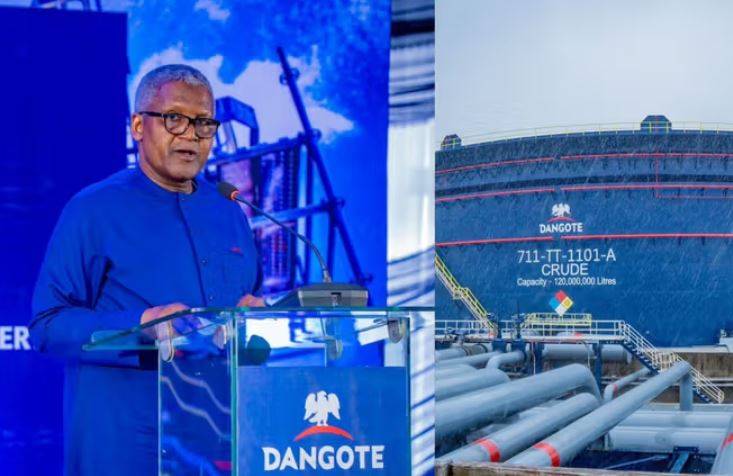The Depot and Petroleum Products Marketers Association of Nigeria (DAPPMAN) has accused the Dangote refinery of selling petroleum products at cheaper rates to international markets than to domestic marketers, disputing claims that the refinery is sufficiently meeting Nigeria’s fuel needs.
According to DAPPMAN, the refinery currently supplies only 30 to 35 per cent of national petrol demand, while marketers—including its members—import the remaining 65 per cent.
In a statement issued on Saturday, the Association’s Executive Secretary, Olufemi Adewole, said: “While we welcome the Dangote Refinery as a major infrastructure project, its contribution has peaked at only 30 to 35 per cent of national demand.”
He stressed that insinuations suggesting the refinery provides adequate domestic supply are inaccurate, adding that the supposed offer of “free product delivery” is misleading.
“The balance continues to be supplied by responsible petroleum product marketers, including DAPPMAN members, who import and distribute under strict regulatory oversight by the Nigerian Midstream and Downstream Petroleum Regulatory Authority (NMDPRA),” Adewole stated.
He also expressed concern over the growing tensions between the Dangote Petroleum Refinery and the National Union of Petroleum and Natural Gas Workers (NUPENG). “While the matter may not directly concern our Association, we are alarmed by the tone, trajectory, and escalation of this issue. Beyond the reputational risks to various market participants, we are deeply concerned about the potential impact this may have on ordinary Nigerians, particularly in a downstream environment still stabilising post-deregulation.”
Adewole argued that portraying Nigeria’s downstream stability as dependent solely on one refinery is “misleading and dismissive of the broader ecosystem.” For decades, he said, DAPPMAN marketers have ensured fuel access across the country by investing in depots, trucking fleets, retail networks, and logistics—even through periods of forex pressure, subsidy transitions, insecurity, and economic downturns.
He further criticised claims that the Dangote Refinery’s fuel price reductions were patriotic gestures, describing them as strategically timed actions that hurt competition. “These reductions were often strategically timed when other importers had active cargoes at sea or in tank, creating price shocks that undermined competition and imposed financial strain on fellow market participants, including the refinery’s domestic customers. Even more concerning is the refinery’s pattern of offering lower prices to international buyers while quoting higher rates to local offtakers,” he said.
DAPPMAN rejected any suggestion that its members supply substandard fuel. Adewole insisted: “All imports are subject to independent, regulator-accredited laboratory testing in accordance with NMDPRA protocols and global quality standards. Ironically, the same refinery alleging superiority has on multiple occasions sought waivers to distribute products with sulphur levels above approved thresholds, a fact that calls into question its consistency and credibility on product quality.”
He also dismissed Dangote’s claims of “free delivery.” “In reality, marketers are required to lift at least 25 per cent of their allocations directly from the refinery gantry and must do so using only Dangote-owned trucks, paying commercial rates based on their destination. This arrangement imposes additional logistical and financial burdens on marketers, limits operational flexibility, and undermines the narrative of cost relief being provided to the local market.”
While acknowledging the refinery as a valuable contributor, Adewole stressed that it is not a sole solution for Nigeria’s downstream sector. “Nigeria’s downstream sector is not driven by one facility alone. It is powered by an ecosystem of refiners, depots, marketers, transporters, and regulators, working in tandem to ensure nationwide access to fuel under often difficult circumstances. We caution against narratives that monopolise credit, shift blame, or undermine the confidence of investors, partners, and the public.”
DAPPMAN reaffirmed its commitment to competition, transparency, and collaboration in Nigeria’s petroleum industry. Adewole concluded: “We call on all parties, including the Dangote Refinery, to engage constructively and communicate responsibly, avoiding one-sided accounts that can destabilise market confidence. The future of Nigeria’s energy sector lies not in divisive narratives, but in cooperation, regulatory compliance, and mutual respect.”

